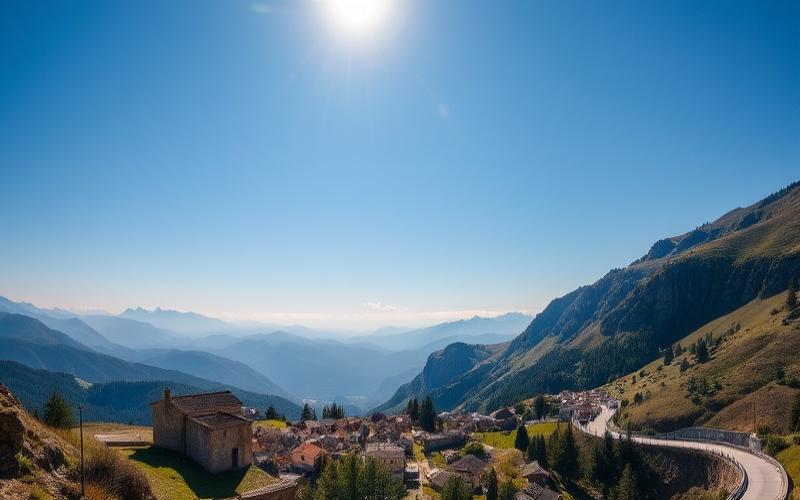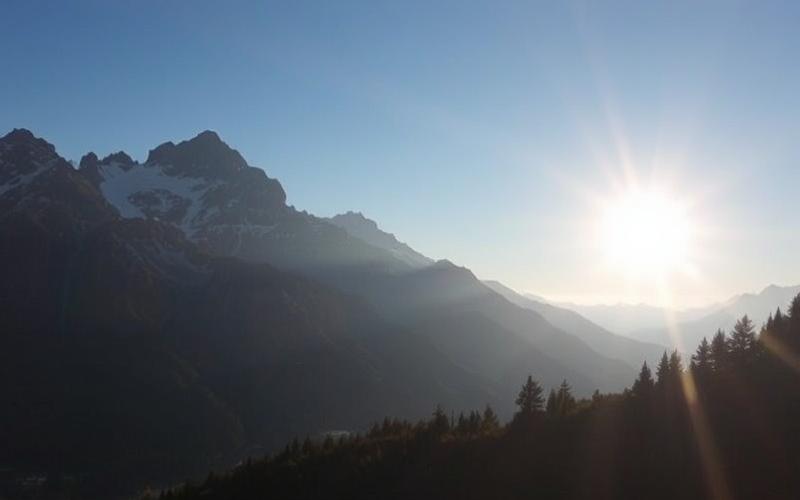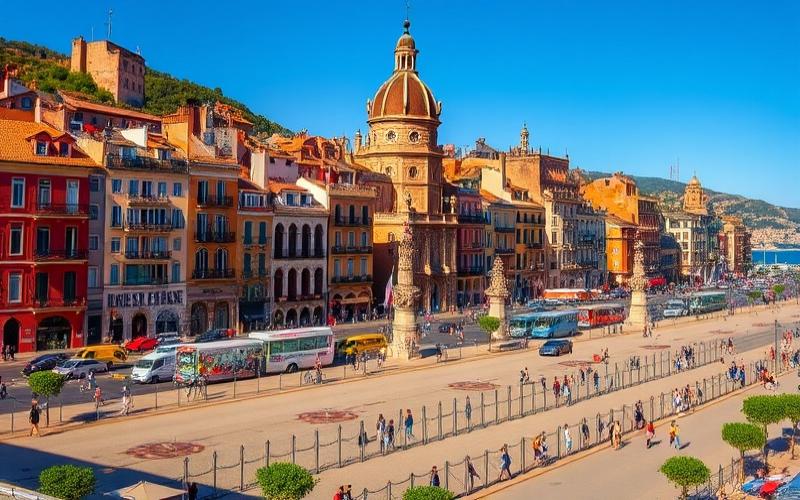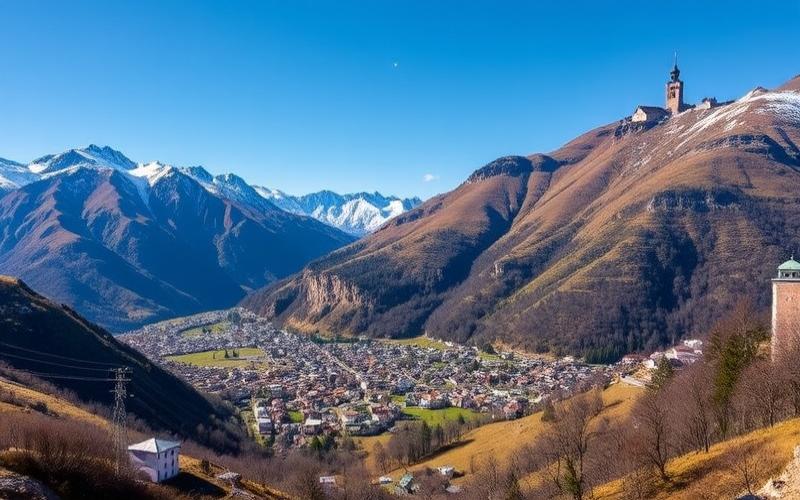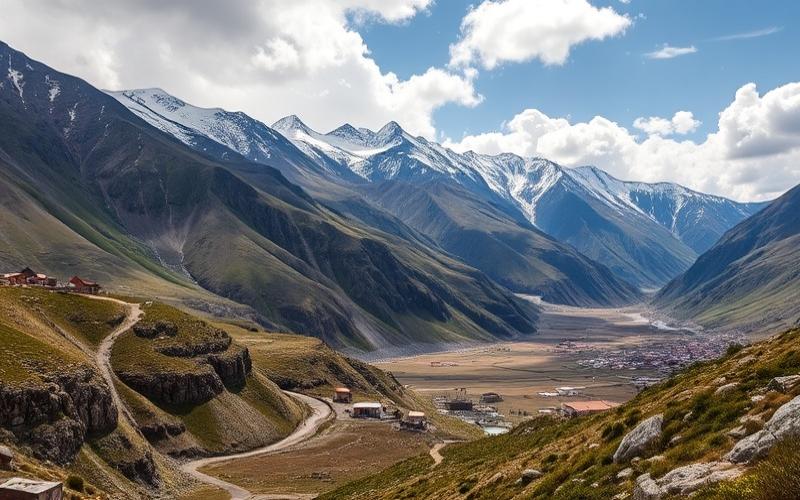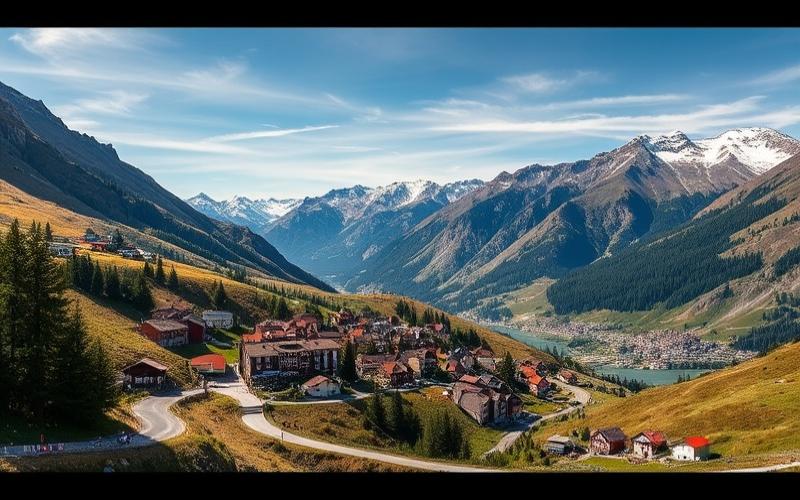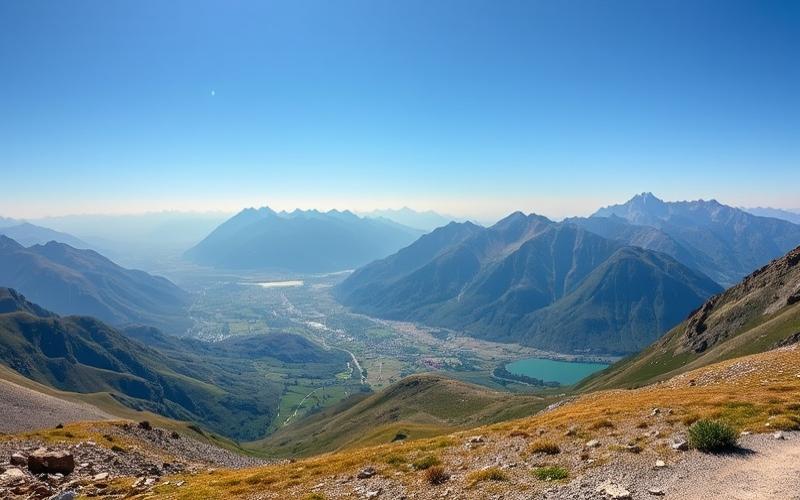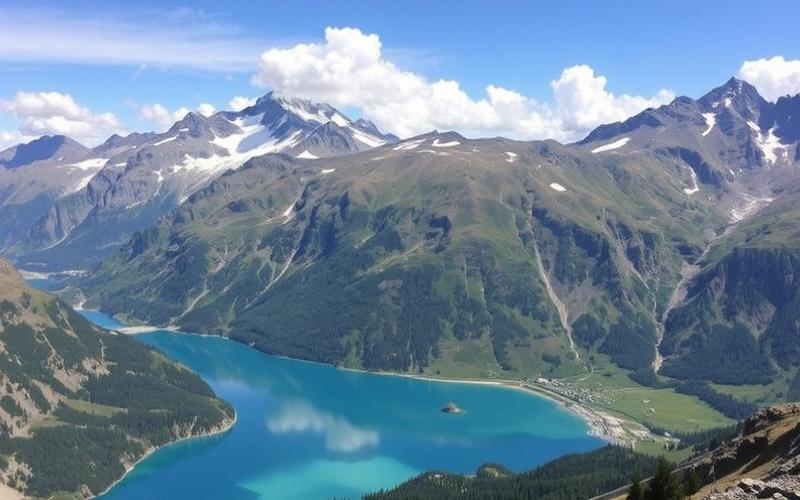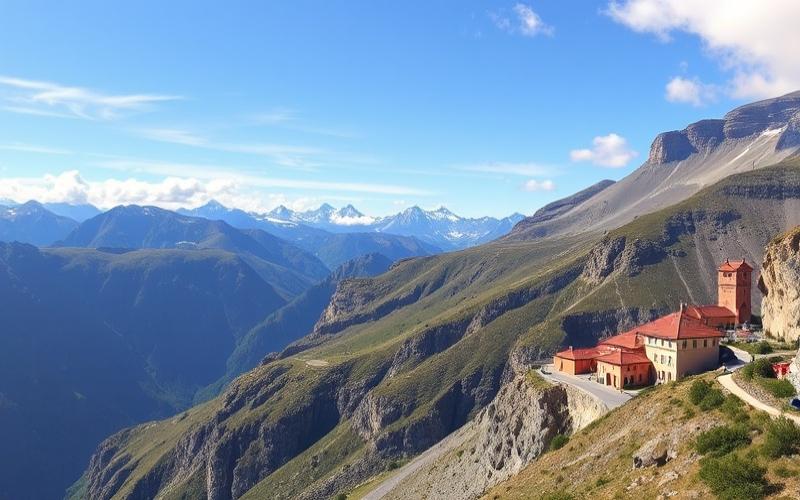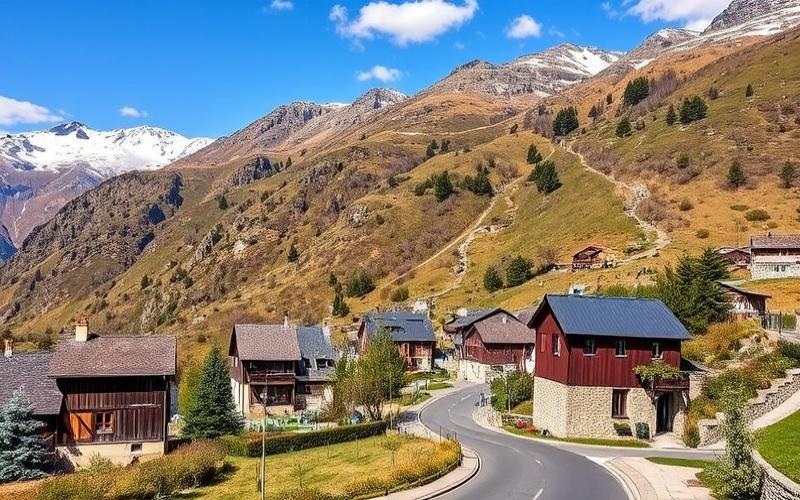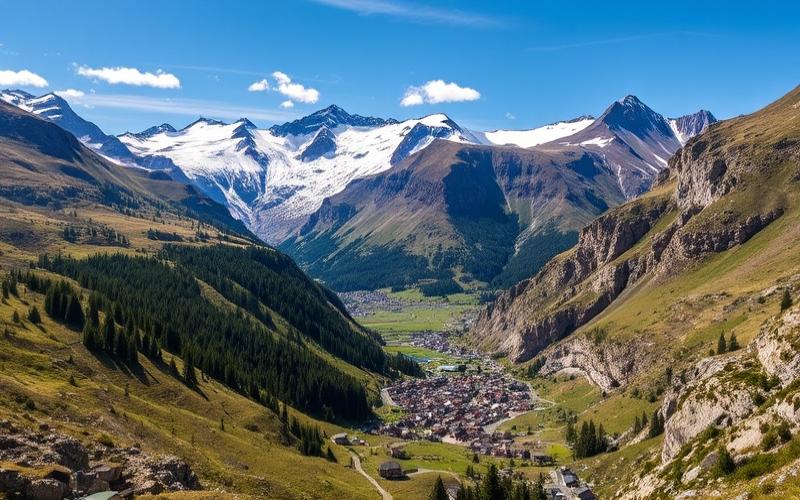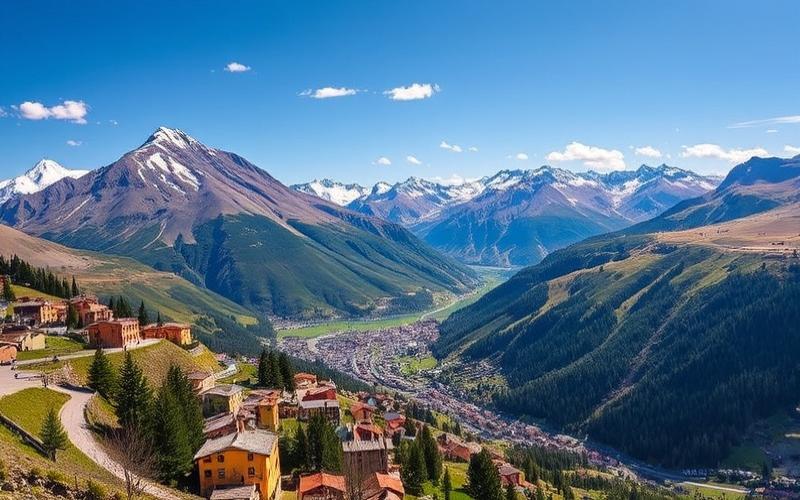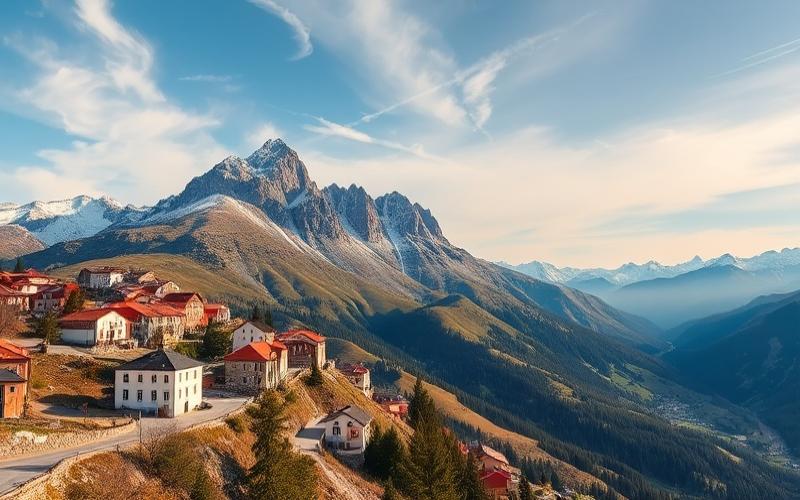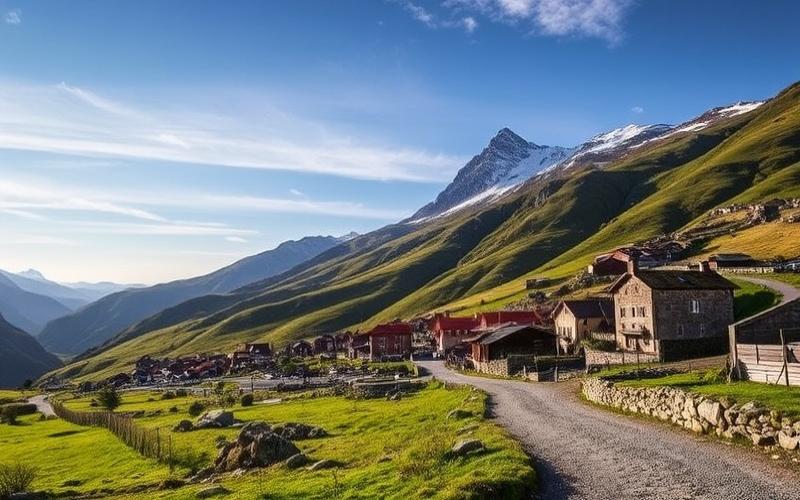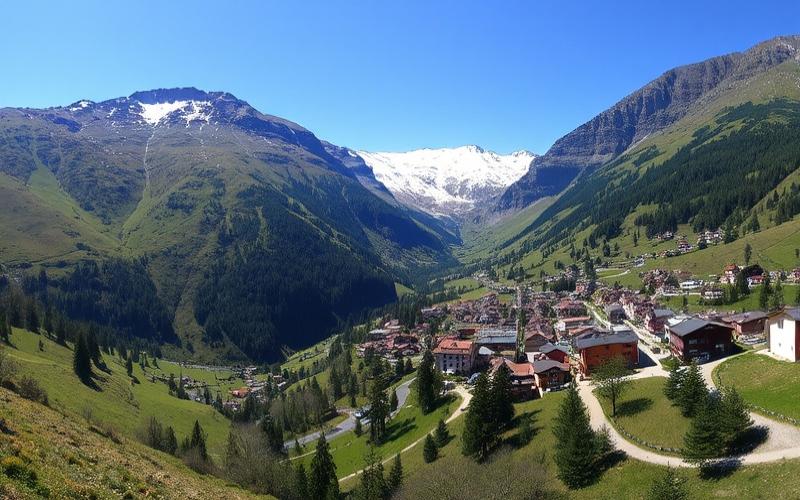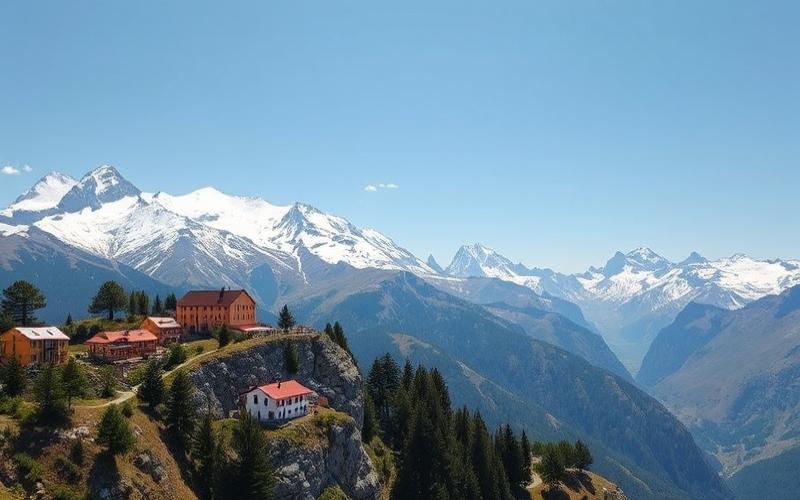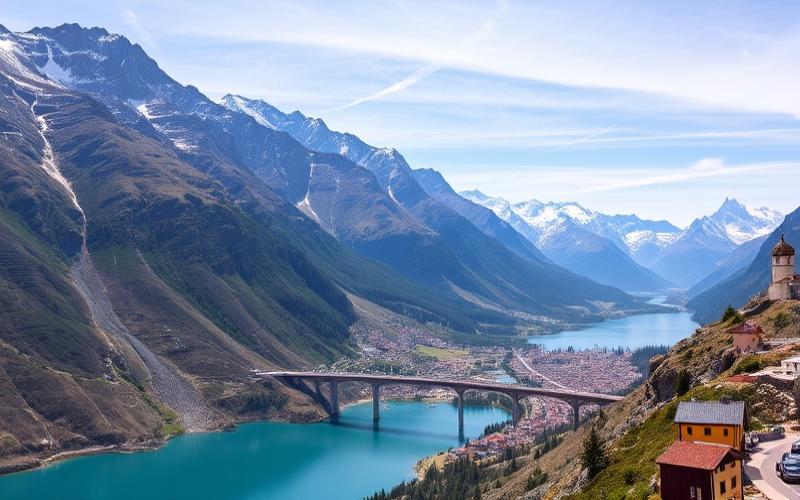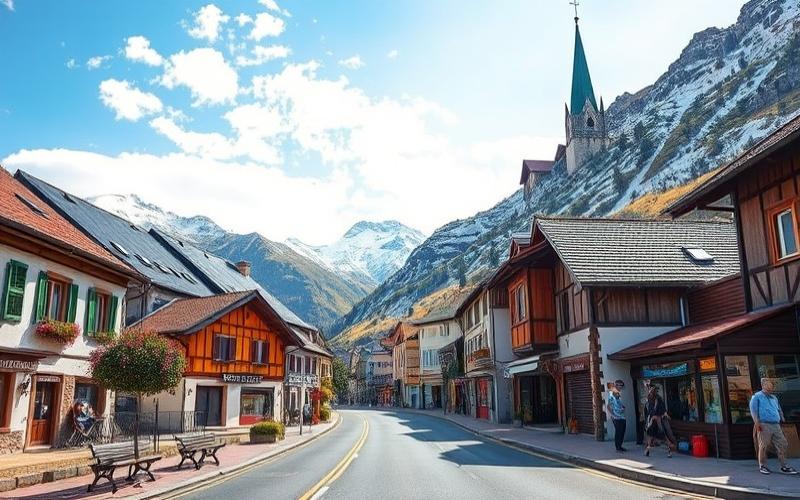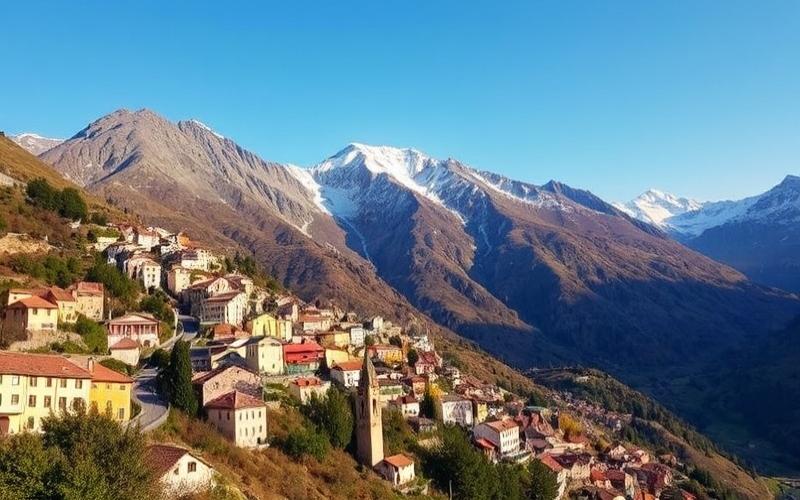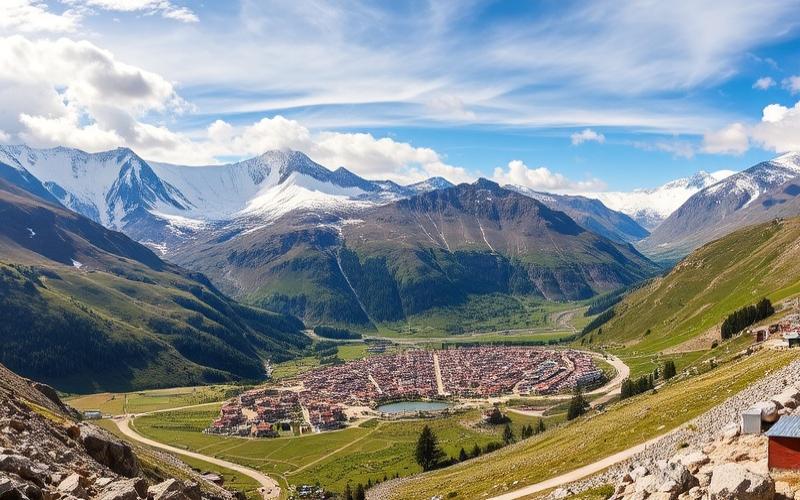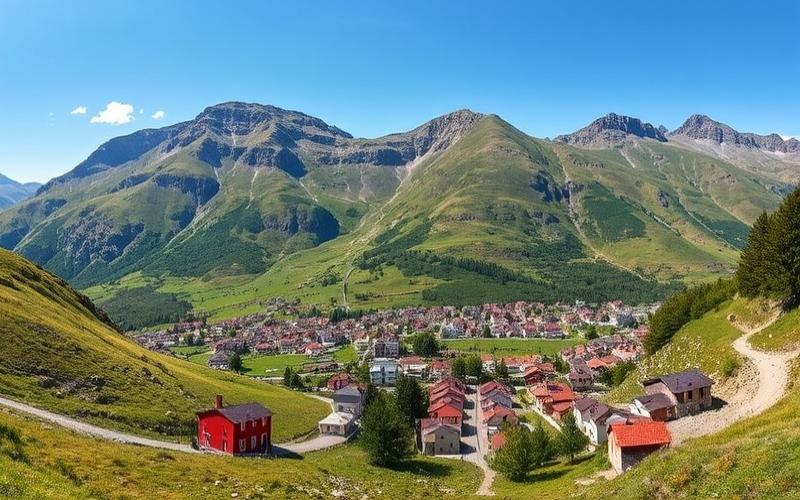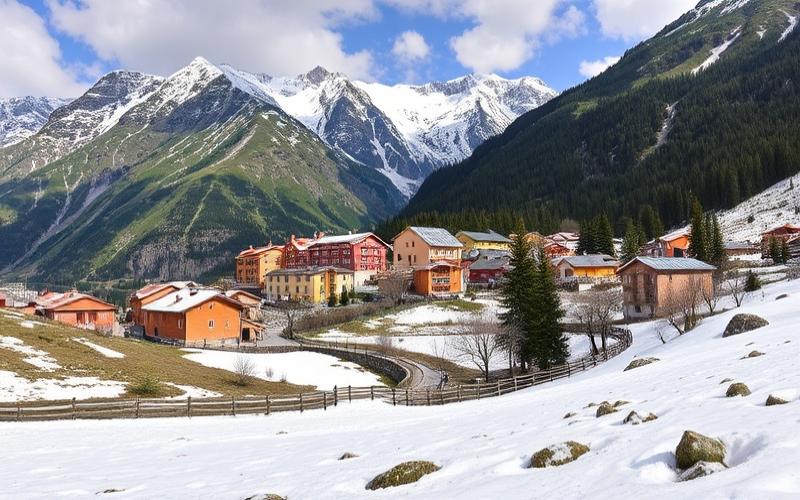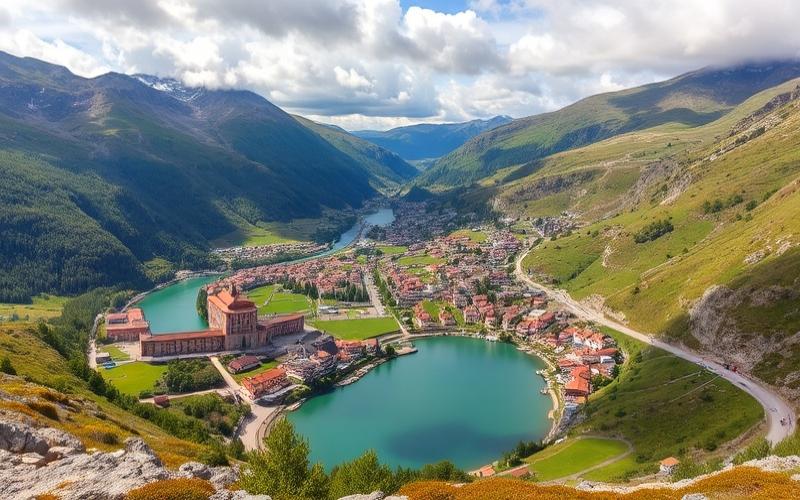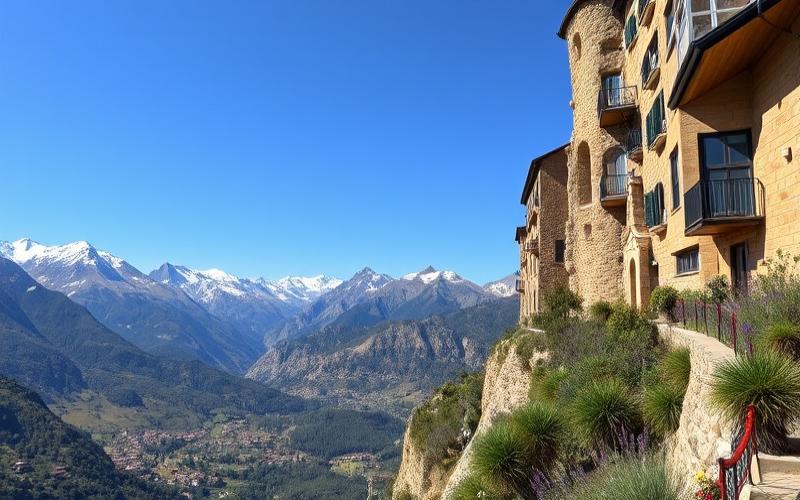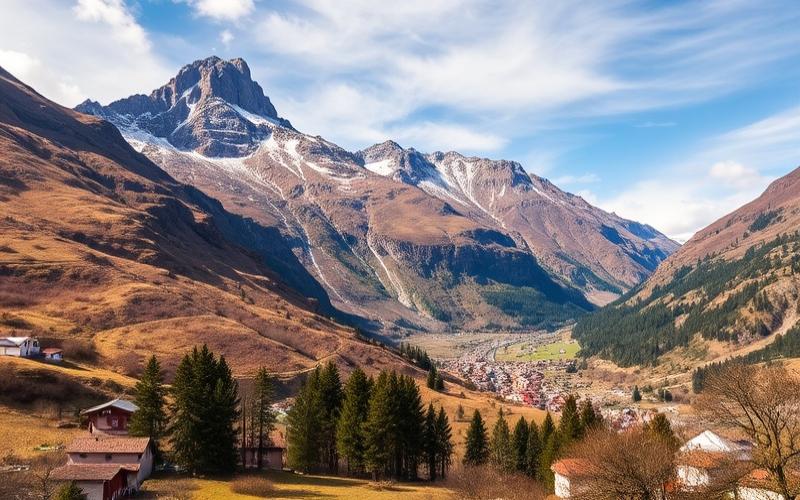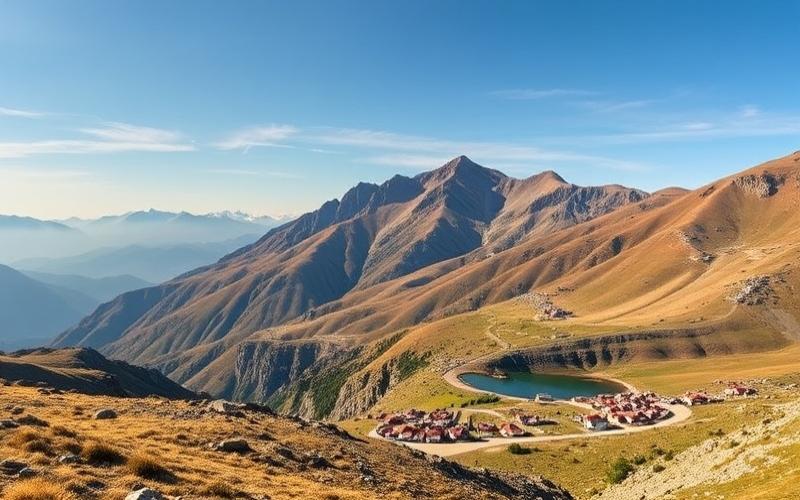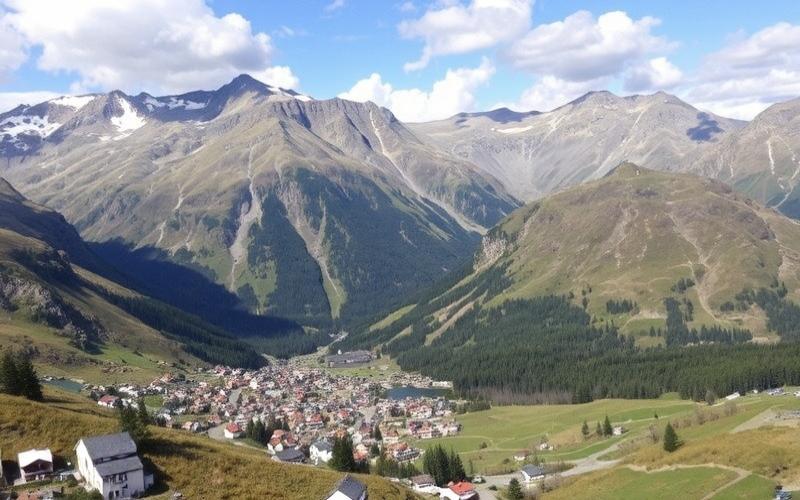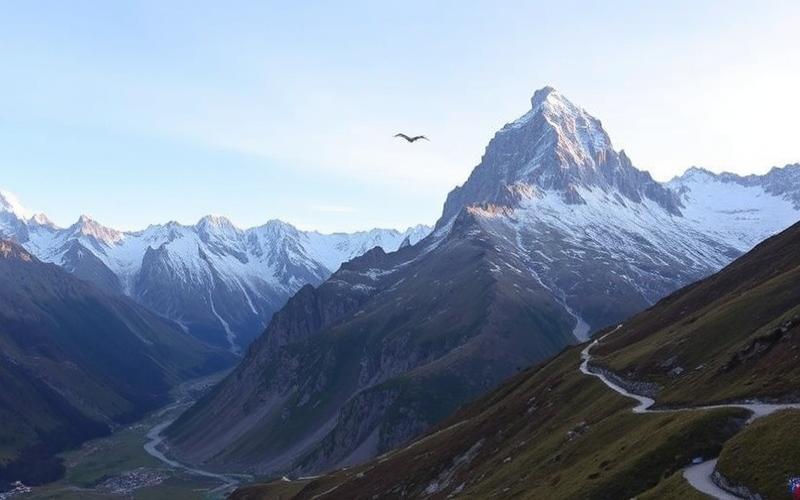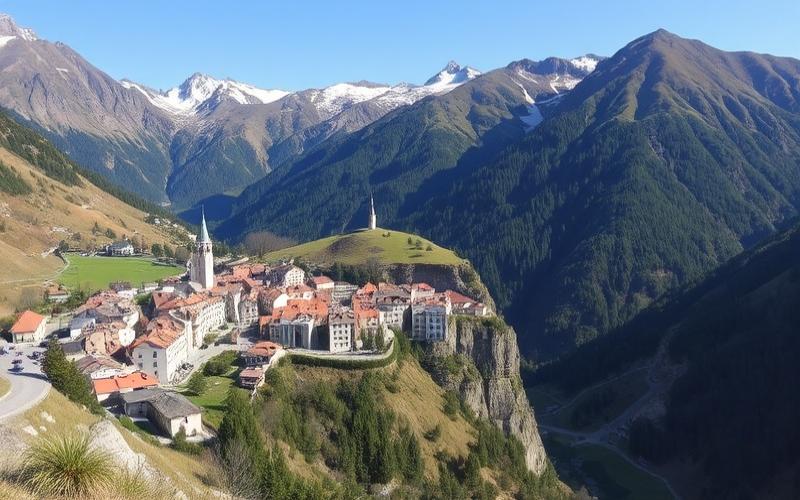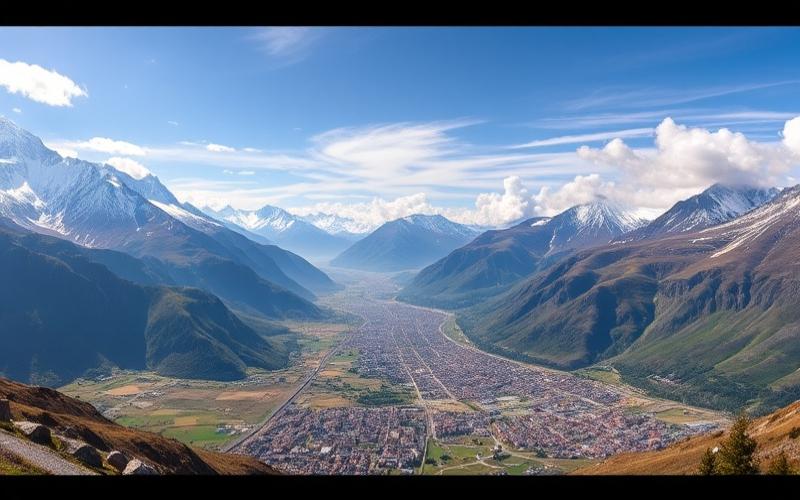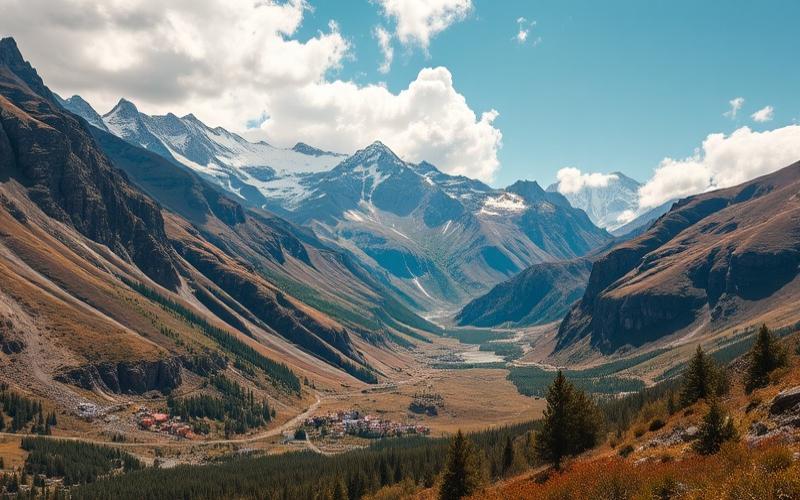
 Published on and written by Cyril Jarnias
Published on and written by Cyril Jarnias
In the complex fiscal and real estate landscape of Andorra, understanding the role of notaries and the mechanisms surrounding notary fees is essential for anyone wishing to navigate the principality’s real estate market with confidence.
These legal professionals play a crucial role in validating real estate transactions, ensuring processes are carried out with the transparency and integrity required by Andorran law. However, the costs associated with their services can sometimes seem opaque to foreigners unfamiliar with the local system.
This guide aims to demystify these crucial aspects by providing clear and detailed information on notary fees and services, to help you anticipate potential expenses and optimize your administrative procedures in Andorra.
Understanding the Notary’s Role in Andorran Real Estate Purchases
The notary in Andorra plays a central and mandatory role in any real estate transaction. They are the guarantor of the process’s legality, transparency, and legal security.
Main Responsibilities of the Notary:
- Meticulous verification of the parties’ identities and legal capacity.
- Thorough review of property titles, habitability certificates, and other official documents to avoid risks related to hidden defects or undeclared mortgages.
- Drafting, supervising, and authenticating the preliminary contract, then preparing and overseeing the signing of the final contract (authentic deed) before themselves.
- Clearly explaining the contractual obligations, legal consequences, and any potential legal restrictions concerning the property to the parties.
- Impartial protection of both the seller’s and buyer’s interests: the notary is not a representative but an independent public official.
- Official filing with the Andorran land registry to ensure the deed is enforceable against third parties.
Specific Procedures in Andorra:
- Signing a reservation contract between buyer and seller with a deposit payment confirming the intention.
- Mandatory opening of a local bank account to make payments.
- Compilation by the notary of the complete file including all supporting documents required by Andorran law (foreign investor authorization if necessary).
- Strict verification by the notary:
- Cadastral compliance,
- Tax situation,
- Municipal habitability certificate mandatorily provided by the seller,
- Absence of any registrations or encumbrances affecting the property.
- Final signing at one of the four official Andorran notaries; simultaneous payment of the agreed balance.
Comparative Table: Specific Role in Andorra vs Other Jurisdictions
| Country | Mandatory Legal Role | Limited Number/Notaries | Habitability Compliance Check | Deed Filing at Land Registry |
|---|---|---|---|---|
| Andorra | Yes | 4 | Yes | Mandatory |
| France | Yes | Not limited | Not systematic | Mandatory |
| Spain | Yes | Not limited | Varies by region | Mandatory |
Calculation & Collection of Notary Fees:
Fees are regulated: generally a fixed 1% of the final price or based on a flat-rate bracket + a variable portion calculated on the declared value in the authentic deed.
To these fees is added a local tax called ITP (Impost Tax Patrimoni) equivalent to 4%: paid directly via bank check during the signing at the notary, distributed between the national government and local commune.
Checklist – Steps Supervised by the Notary:
- Preparation of legal file
- Legal & tax verifications
- Drafting preliminary then final deed
- Organizing official appointment
- Collection of fees & taxes
- Filing with the land registry
The impartial role, strictly regulated by law, strongly distinguishes Andorran notarial practices which prioritize maximum security for both sellers and buyers in every real estate transaction.
Good to Know:
In Andorra, the notary plays a crucial role in real estate purchases, guaranteeing the transaction’s legality and protecting the parties’ interests. They verify document compliance, ensuring sales respect the local legal framework. From the sales agreement, the notary supervises the process until the final deed, checking property titles and any potential mortgages. Compared to other jurisdictions, in Andorra, the notary has the specific task of drafting the authentic deed, which is mandatory for the sale to be valid. Regarding fees, the notary calculates these based on a progressive scale tied to the property’s value, collecting them during the deed signing. Thus, choosing a competent notary well-informed about Andorran specifics is essential for securing your real estate investment.
Breakdown of Notary Fees for a Purchase in Andorra
The breakdown of notary fees during a real estate purchase in Andorra includes several main elements, each with its own calculation method.
| Elements | Calculation Method | Nature (Fixed/Variable) |
| Notary Fees | 1% of purchase price or 0.1% + fixed fee (€600–€1500) | Variable based on property value + fixed portion |
| Registration Fees (ITP) | 4% of purchase price; sometimes split between government and commune (e.g., 1% government + 3% commune) | Variable based on property value and commune |
| Ancillary/File/Formality Fees | Generally included in the notary flat fee or billed separately for specific procedures | Fixed or variable depending on the file |
Numerical example for a typical purchase in Andorra:
- Acquisition Price: €400,000
- Notary Fees:
- Calculated at 1% → €4,000
or
- Fixed fee (€1000) + 0.1% → (400,000 × 0.001 =) €400, total €1400 - ITP Registration Fees:
- Calculated at 4% → (400,000 × 0.04 =) €16,000 - Ancillary/File Fees:
- Estimated administrative flat fee between €500 and €1500, depending on formalities
Estimated total fees (classic scenario with 1% fees)
Notary Fees: ≈ 4,000 € ITP: ≈ 16,000 € Ancillary/File Fees: ≈ 800 € Approximate Total ≈ 20,800 €
Possible variations depending on region or property type:
- The communal rate for local ITP may vary but is generally set at the maximum authorized by the communes.
- For certain specific purchases (first-time primary residence), partial exemptions exist for the ITP.
- Atypical properties like commercial premises or land may involve additional formalities.
Elements to verify when reviewing notary fees before signing:
- The precise breakdown between fixed and variable fees
- The correct application of the local/governmental ITP rate
- The potential presence of exceptional fees related to special administrative procedures (surveyor, urban planning)
- Applicable exemptions based on the type of purchase
Verify that each item is clearly detailed in the draft deed; do not hesitate to request a precise quote beforehand. A personalized tax analysis often allows for legal optimization of the amounts due.
Good to Know:
In Andorra, notary fees for a real estate purchase mainly consist of registration fees, representing about 0.5% of the property value, as well as notary fees, generally between 0.1% and 0.4% of this same value. To this are added ancillary fees, such as file and administrative formality fees, which can vary between a few hundred and a thousand euros depending on the operation’s complexity. For example, for a €300,000 property, registration fees would be €1,500 and notary fees around €900. It is important to note that these fees can slightly vary depending on the location and type of property, but also on the administrative procedure policies specific to each commune. Before finalizing a purchase, it is crucial to request a precise breakdown of the fees to avoid bad surprises and to verify any potential specific variations that might apply, especially for luxury properties or those located in sought-after tourist areas.
Identifying Hidden Costs Associated with Real Estate Purchase in Andorra
Land Registry Registration Fees
Andorra applies registration fees of approximately 1 to 1.5% of the purchase price of the real estate property, to which notary fees are added (€600 to €1,200 depending on the deed’s complexity).
These fees can vary depending on the parish (commune) where the property is located and the type of property (single-family home, apartment, commercial premises).
Since April 2025, a progressive additional tax (from 3 to 10% for non-residents, depending on the number and category of properties purchased) applies, particularly for foreign investments and multiple purchases.
Real Estate Brokerage Fees
Real estate agency fees in Andorra generally vary between 5 and 10% of the sale price.
These fees are often the seller’s responsibility, but it is important to verify this point in the sales or purchase mandate.
Annual Property Taxes
There is no traditional property tax nor habitation tax in Andorra.
Some communes levy a symbolic local fee, generally less than €200 per year, to fund public services (roads, garbage collection…).
Example: for an €800,000 villa, the local tax can be less than €150 per year.
Home Insurance
Subscribing to home insurance is strongly recommended, or even required by banks in case of financing through a loan.
The cost depends on the surface area, location, type of property, and chosen coverage: on average between €150 and €350 per year for a standard apartment.
Minimum requirements generally include coverage for fire risks, water damage, civil liability, and sometimes natural risks specific to the mountainous region.
Maintenance or Condominium Fees
For apartments in buildings or residences with services, there are condominium fees (maintenance of common areas, elevator, collective heating, etc.).
These fees vary according to the building size and facilities: approximately €40 to €120 per month for a standard apartment.
For a villa, maintenance costs (garden, snow removal, road maintenance) are the exclusive responsibility of the owner.
Document Translation Costs
Catalan is the official language: some legal or notarial documents must be drafted or translated into Catalan.
Certified translation fees vary, generally between €30 and €60 per page for official documents.
Practical Tips for Anticipating and Managing Hidden Costs
- Request a detailed quote at each stage (notary, agency, translator, condominium association).
- Compare insurance offers and verify specific guarantee exclusions for the region.
- Plan an annual budget for local and maintenance charges, even if they are low compared to other countries.
- Check with the town hall (commune) for any potential specific taxes or fees applicable to the location.
- Anticipate legislative changes: some taxes or obligations can change quickly, especially for foreigners.
- Negotiate agency fees when possible, especially in case of a purchase without a bank loan.
- Account for management fees if the property is intended for seasonal rental (property management, cleaning, taxation).
| Expense Item | Indicative Amount | Variation by Property/Location |
|---|---|---|
| Registration Fees | 1 to 1.5% of purchase price | Parish, property type |
| Additional Tax (non-residents) | 3 to 10% of purchase price | Number/type of properties |
| Real Estate Agency Fees | 5 to 10% of sale price | Sales mandate, negotiation |
| Annual Local Fee | ≤ €200 / year | Parish (commune) |
| Home Insurance | €150 to €350 / year | Surface area, coverage, location |
| Condominium Fees | €40 to €120 / month | Building, facilities |
| Document Translation | €30 to €60 / page | Volume, urgency, document type |
Good to Know:
When purchasing real estate in Andorra, it is crucial to consider hidden costs such as land registry registration fees, which can vary depending on the location and property type, sometimes exceeding the typical 1 to 2% of the purchase price. Brokerage fees are also to be expected, with the typical commission being around 3 to 5% of the sale price. Annual property taxes vary significantly by municipality, and it is recommended to check the specific rates for each area. Home insurance can generate additional costs, and depending on regional requirements, it is advisable to choose appropriate coverage. For apartments, maintenance or condominium fees may be added, often calculated on a monthly basis. Furthermore, translation services for legal documents, necessary due to the official language, can represent an additional cost. To manage these expenses, anticipating the various fees from the start of the project is essential, and consulting a local real estate agent or notary can prove useful to better foresee and smooth out these unexpected costs.
Steps of the Legal Process for a Real Estate Purchase in Andorra
Initial Steps: Search, Selection, and Negotiation
- Search for a property suited to your needs through local real estate agencies, specialized platforms, or direct contacts.
- Select the property considering location, price, rental potential, and legal characteristics.
- Negotiate the price and purchase conditions with the seller. In Andorra, negotiation is common, especially if the property has specificities or requires work.
Example: A buyer managed to obtain a 5% reduction on the initial price after identifying necessary renovation work in the desired apartment.
Notary’s Role in the Procedure
- Verification of the property’s legality (property titles, absence of mortgage or encumbrances, urban planning compliance).
- Review of required documents: foreign investment authorization for non-residents, identity documents, reservation contract, etc.
- Securing the transaction: the notary drafts the deeds, holds funds in an escrow account until signing, and ensures legal obligations are met.
In Andorra, only four notaries are authorized to intervene in real estate transactions. Their role is central and unavoidable.
Signing the Preliminary Contract (Compromise/Comprador)
- Signing a reservation contract or sales agreement (commonly called “comprador”).
- Payment of a deposit (generally 5% to 10% of the price) which validates the purchase option and removes the property from the market for a determined period.
- Common clauses: property description, price, deadlines, suspensive conditions (obtaining financing, obtaining foreign investment authorization for non-residents).
Example: A foreign investor signs a comprador with the suspensive condition of obtaining foreign investment authorization, thus protecting their deposit in case of administrative refusal.
Obtaining the NIE (Foreigner Identification Number)
- In Andorra, the NIE is replaced by a foreign investment authorization, mandatory for non-residents wishing to purchase a property.
- Procedures: filing a dossier with the Andorran government, including identity proofs, motivations, and property details.
- This document is indispensable for continuing the procedure and must be obtained before signing the authentic deed.
Importance of Mortgage and Specific Conditions
- Mortgages in Andorra are possible but subject to strict conditions: high personal contribution (often 30% minimum), proven solvency, thorough study of the file by an Andorran bank.
- Non-residents may face more restrictions or different interest rates.
Example: a resident more easily obtains local financing than a non-resident, who may sometimes need to solicit their bank in their country of origin.
Finalizing the Purchase: Signing the Sales Deed
- Signing the authentic deed before the notary, in the presence of both parties.
- Payment of the price balance and handover of keys.
- The notary proceeds with filing the deed and transferring ownership with the competent registries.
Applicable Taxation During Purchase
| Tax | Rate/Cost | Remarks |
|---|---|---|
| IGI (General Indirect Tax) | 4.5% of purchase price | Payable on new properties |
| Transfer Taxes | 1 to 2.5% depending on commune | To be settled during transfer |
| Annual Property Tax | Variable by parish | Starting from acquisition year |
Example: for the purchase of a €500,000 apartment, plan for approximately €25,000 in IGI for a new property, plus communal transfer taxes.
Practical Tips for a Successful Transaction
- Engage a local lawyer or specialized advisor to verify all legal and tax aspects.
- Arrange for a technical inspection of the property to avoid bad surprises.
- Use local resources (notaries, real estate agencies, concierge services) to facilitate administrative procedures.
Tip: some foreign buyers save time by mandating a relocation agency for the entire process, from property search to final signing.
Andorran Specificities Compared to Other Jurisdictions
| Andorra | France/Spain (examples) |
|---|---|
| Foreign Investment Authorization | Not required for EU nationals |
| Few Notaries (4) | Large number of notaries |
| Advantageous Taxation | Heavier taxation |
| Centralized Procedure | Sometimes more fragmented procedure |
Anecdote: A Spanish buyer, surprised by the speed of the procedure in Andorra, finalized his purchase in less than two months thanks to the centralization of procedures with the notary, whereas a similar purchase would have taken him over six months in Spain.
Assistance from local experts is highly recommended to secure each step and optimize the real estate purchase experience in Andorra.
Good to Know:
When purchasing real estate in Andorra, start by targeting the desired property and negotiate directly with the seller. The notary plays a crucial role in verifying the property’s legality and securing the transaction. During the signing of the preliminary contract, or “comprador,” plan to include protective clauses and a deposit. Obtain an NIE if necessary, indispensable for integrating into the Andorran legal system. To finance your purchase, a mortgage may be required with specific conditions like rates according to Andorran standards. At the signing of the sales deed, the notary authenticates the transaction, finalizing the purchase. Prepare to pay the IGI and transfer taxes, a local fiscal specificity. For a smooth transaction, surround yourself with local experts and compare with other jurisdictions: Andorra often offers a more flexible framework but requires rigorous diligence on certain legal aspects.
Disclaimer: The information provided on this website is for informational purposes only and does not constitute financial, legal, or professional advice. We encourage you to consult qualified experts before making any investment, real estate, or expatriation decisions. Although we strive to maintain up-to-date and accurate information, we do not guarantee the completeness, accuracy, or timeliness of the proposed content. As investment and expatriation involve risks, we disclaim any liability for potential losses or damages arising from the use of this site. Your use of this site confirms your acceptance of these terms and your understanding of the associated risks.

